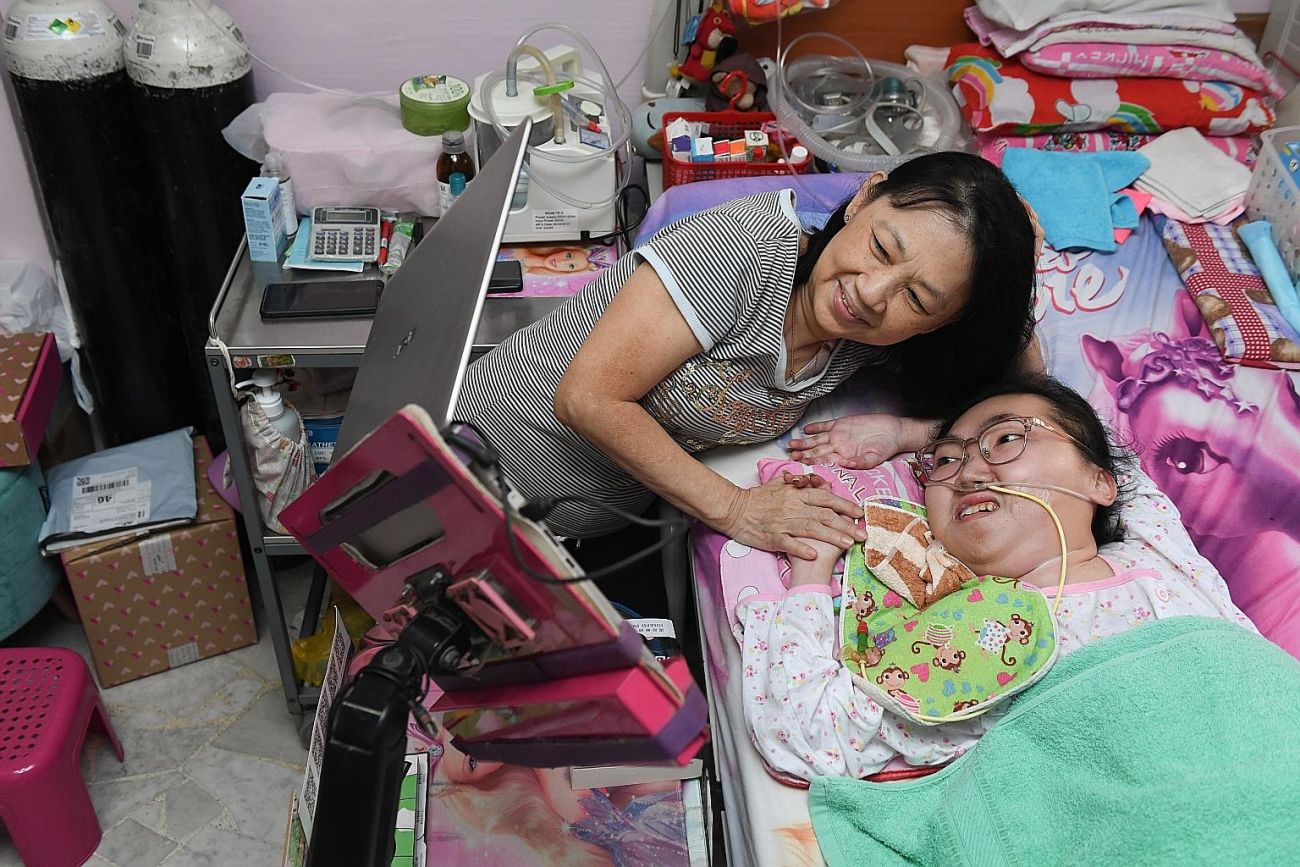
Besides using smart sensors to alert others for help, a team of researchers has also used such sensors to detect mild cognitive impairment that puts the person at a higher risk of developing dementia. Presently, doctors ask the patient a series of questions and perform other tests to determine his cognitive ability. But these traditional tests usually catch cognitive impairment at a later stage, said SMU Associate Professor of Information Systems (Practice) Tan Hwee Pink, who is the study's co-principal investigator. Assoc Prof Tan described the study's results as promising and said using sensors could complement traditional screening tests for mild cognitive impairment.
[Featured Photo: Although she suffers from spinal muscular atrophy type 2 and is confined to her bed, Miss Vivian Goh, seen here with her mother Ivy Yong, is able to run an online business, play online games, watch YouTube videos and attend online church services on her mobile phone and laptop, all thanks to eye-gaze technology, which tracks her gaze on the keyboard and types out words for her. ST PHOTO: SHINTARO TAY]